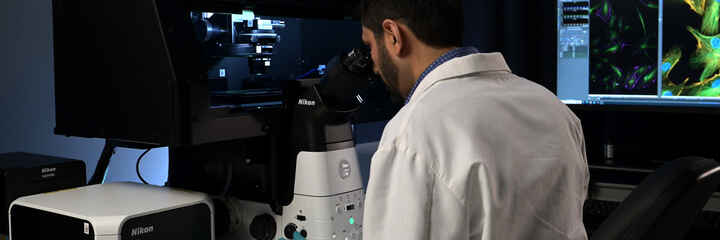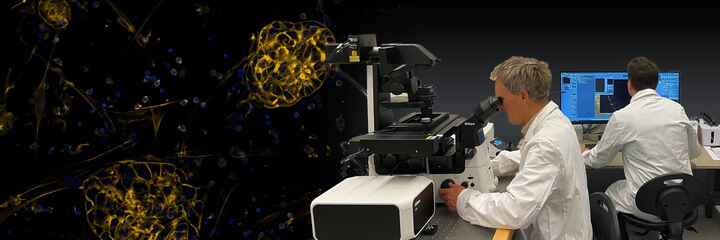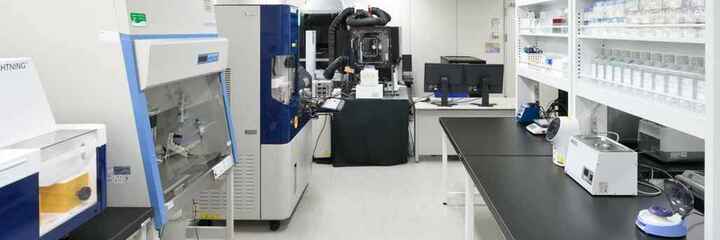
Centro di eccellenza
Leibniz Institute of Virology - Hamburg
The Nikon Center of Excellence (NCoE) at the Leibniz Institute of Virology (LIV) is a collaboration between the institute's Technology Platform for Microscopy and Image Analysis (TPMIA) and Nikon. The partnership aims to provide researchers at LIV and within the Leibniz Center Infection (LCI) with advanced microscopy technology and software solutions for analysis. Moreover, the NCoE promotes the development and implementation of customized preparation and transfer methods for correlative and integrative imaging.
Scientists at LIV utilize a diverse range of light and electron microscopy techniques to examine virus infections in animals, tissue, and cell systems. Investigating the dynamic progression of virus pathogenesis within living cells or complex model systems, such as organoids, requires the sophisticated application of various preparation and microscopy techniques in laboratories classified under biological safety levels (BSL) 2 and 3. The variety of methods applied include transmitted light and fluorescence microscopy techniques, as well as high-content and high-throughput imaging techniques that allow for multiplexed analysis. Additionally, super-resolution approaches, transmission electron microscopy, and scanning electron microscopy methods are employed.
The array of microscopy techniques at LIV enables the imaging of whole organisms, tissues, and cells down to the visualization of individual viruses and even the interaction between viral and host cell molecules.

Contatto
Dr. Christian Conze
Address
Leibniz Institute of VirologyMartinistr. 52
20251 Hamburg
Germany
Systems Available
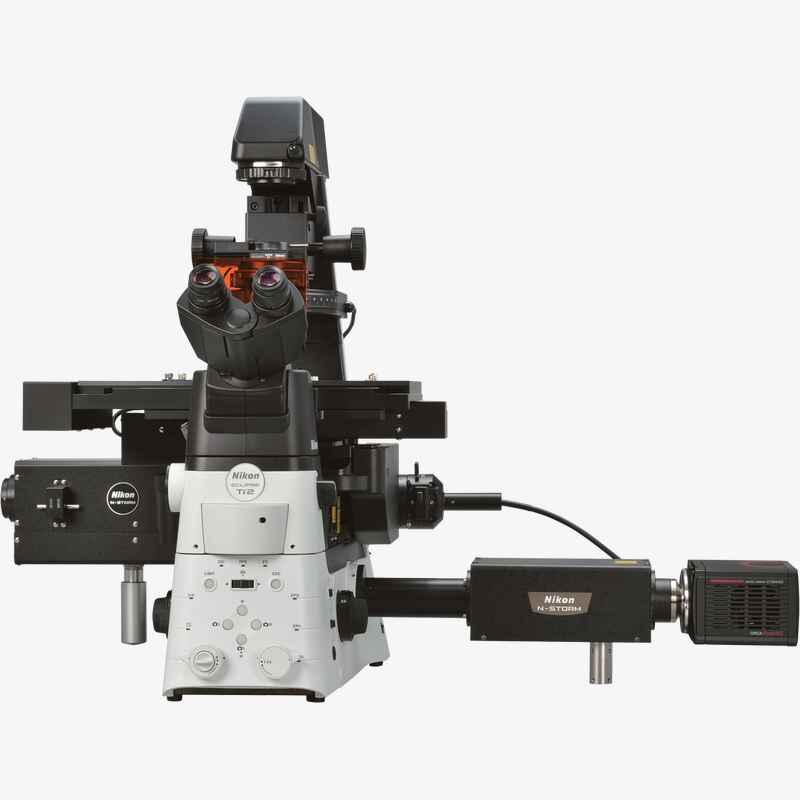
N-STORM Localization-based Super-resolution Microscope
N-STORM is a super-resolution microscope system that combines “STochastic Optical Reconstruction Microscopy” technology and Nikon's Eclipse Ti research inverted microscope. The N-STORM super-resolution microscope provides dramatically enhanced resolution that is 10 times that of conventional optical microscopes and enables molecular level understanding.
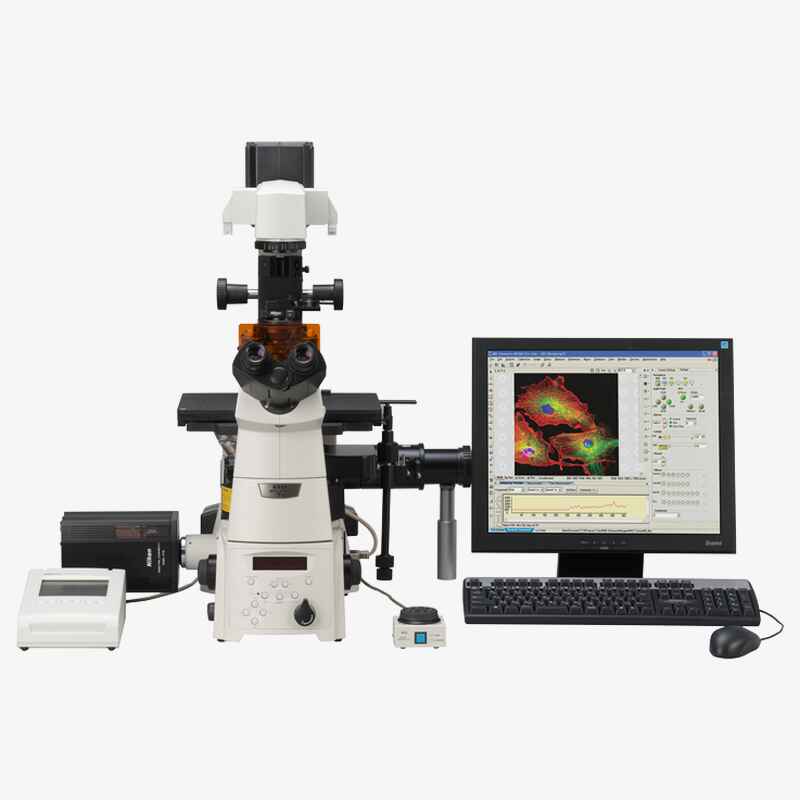
Ti-E PFS Inverted Microscope System
The Eclipse Ti-E with Perfect Focus is Nikon's market leading inverted microscope system offering improved system speed, increased flexibility and efficient multi-mode microscopy as part of a fully-integrated microscope system that is ideal for high-end research and live cell imaging. Perfect Focus is Nikon's exclusive focus correction system that combats axial focus fluctuations in real time during long-term imaging investigations.
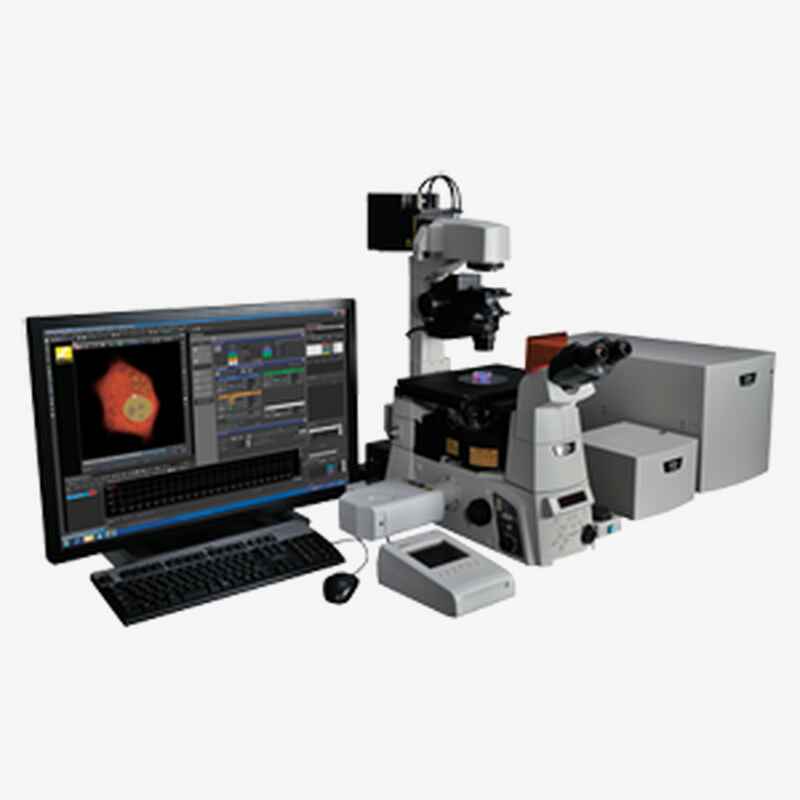
C2+ Confocal Microscope with Ti-E Inverted Microscope
Built on a reputation of incredible stability coupled with superior optical technologies, the C2 includes four channel confocal fluorescence imaging, and vastly expanded spectral capabilities with the ability to capture and unmix data acquired at any channel resolution across the entire detector bandwidth. The system is fully controlled by NIS-Elements imaging software.
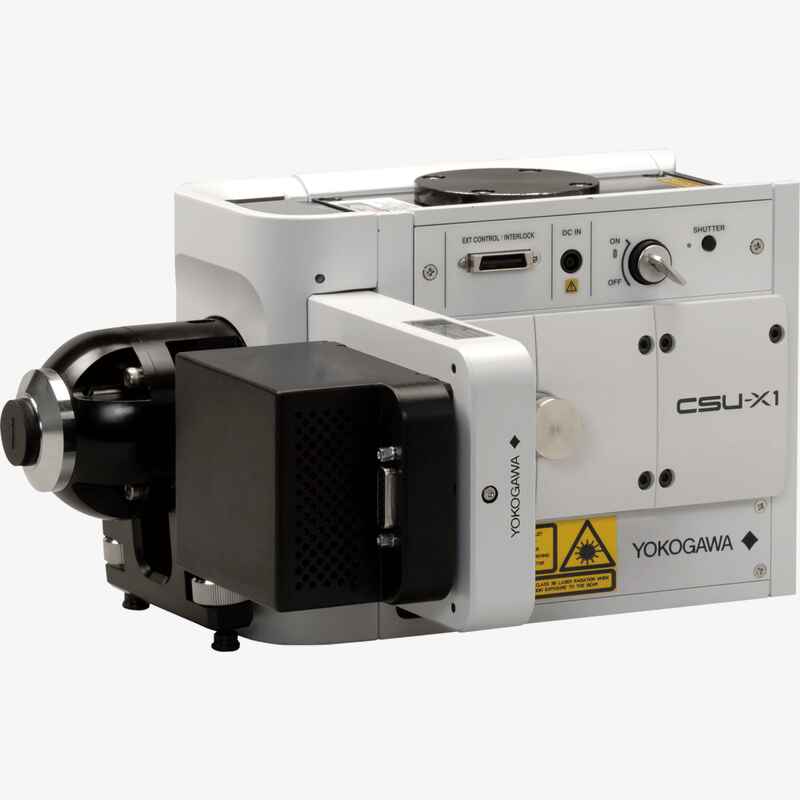
Spinning Disk Confocal System
The Eclipse Ti-E with a Yokagawa CSU-X1 spinning disk confocal with Spectral Applied Research Aurora Borealis modification provides an ultra-fast and sensitive confocal microscope system ideal for live imaging.
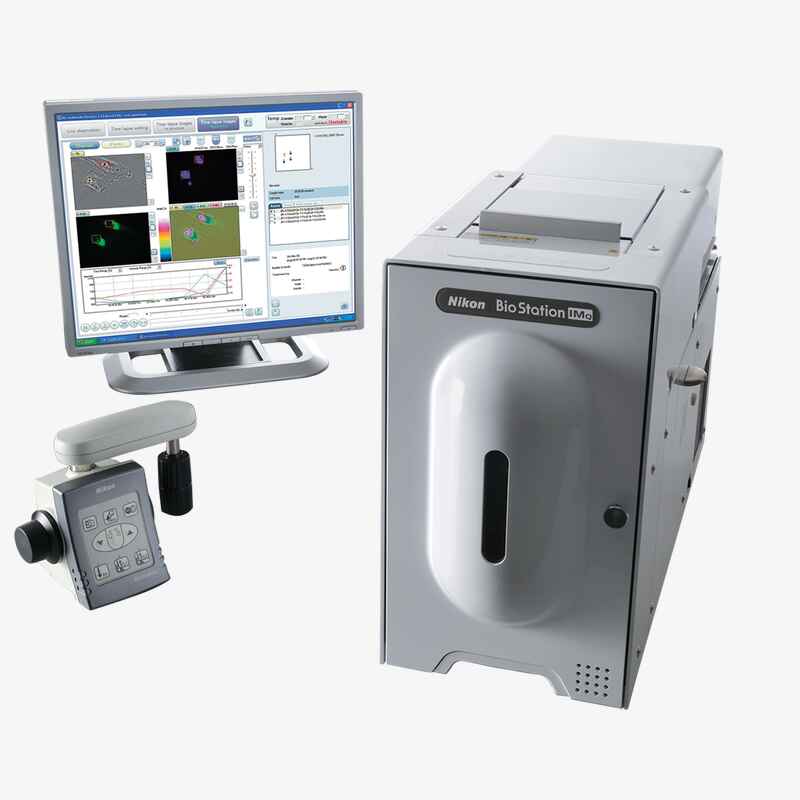
Nikon Biostation Incubator Microscope
The Biostation is an all-in-one, incubator microscope unit designed specifically for performing very long-term, multi-spot live cell imaging, The Biostation software can perform live cell imaging on multiple, stitchable spots on the sample, greatly increasing the experimental throughput as well as the field of view without losing resolution. The system can image red and green fluorophores in combination with phase contrast.
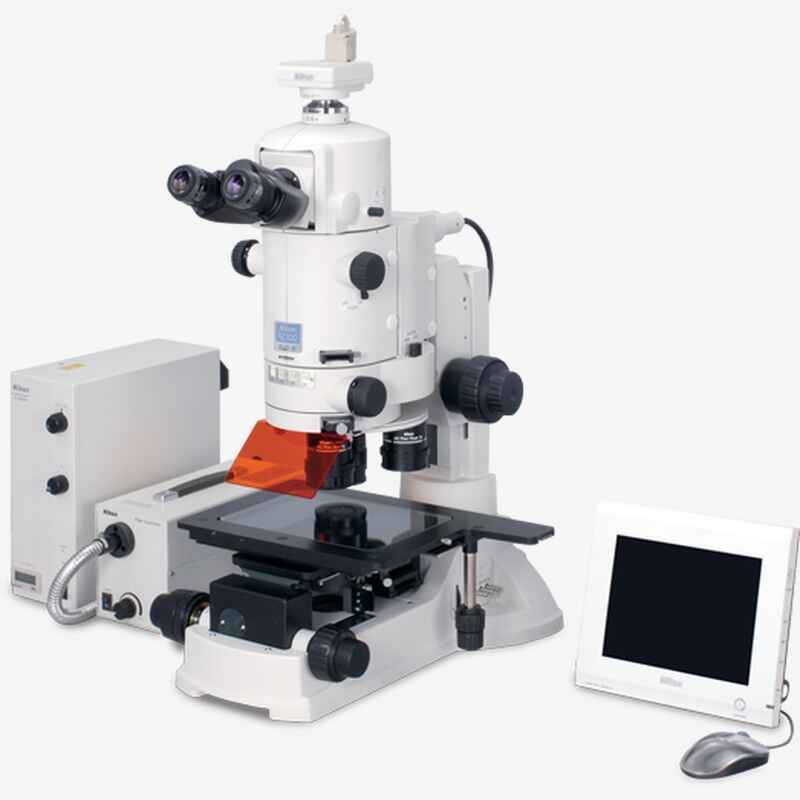
Nikon AZ-100
The AZ-100 Multizoom is a covers an extremely wide range of magnifications, from 5x to 400x, effectively combining the advantages provided by stereo zoom microscopes and compound microscopes. Thanks to a smooth zooming mechanism and a unique triple nosepiece, the AZ100 can continuously switch magnifications, extending from macro to micro observation of the same specimen.

